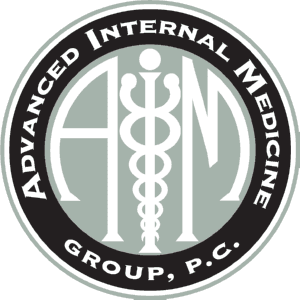For 10 common summer illnesses and how to prevent them, read this blog from AIM Group.
What Are 10 Common Summer Illnesses?
Common summer illnesses can vary depending on the region and individual factors. However, here are some examples of common summer illnesses:
1. Sunburn: Excessive exposure to the sun’s ultraviolet (UV) rays can lead to painful sunburn, which can cause redness, swelling, and blistering of the skin.
2. Heat Exhaustion and Heatstroke: High temperatures and excessive physical activity can result in heat exhaustion or, in severe cases, heatstroke. Symptoms may include dizziness, nausea, headache, rapid heartbeat, and even loss of consciousness.
3. Dehydration: Hot weather can cause increased sweating, leading to fluid loss and potential dehydration. Symptoms of dehydration may include dry mouth, fatigue, dizziness, and dark-colored urine.
4. Food Poisoning: Bacteria thrive in warm temperatures, and improper handling or storage of food during summer picnics, barbecues, and outdoor events can lead to food poisoning. Symptoms often include stomach pain, nausea, vomiting, and diarrhea.
5. Insect Bites and Stings: Mosquitoes, ticks, bees, wasps, and other insects are more prevalent during summer. Bites and stings can cause itching, swelling, redness, and, in some cases, allergic reactions.
6. Swimmer’s Ear: Spending time in pools, lakes, or oceans can increase the risk of swimmer’s ear, an infection of the outer ear canal. Symptoms include ear pain, itching, redness, and discharge.
7. Seasonal Allergies: Summer can bring about seasonal allergies caused by pollen, grasses, and other outdoor allergens. Symptoms may include sneezing, congestion, itchy eyes, and a runny or stuffy nose.
8. Respiratory Infections: While respiratory infections are more common during colder months, air conditioning and close contact in crowded summer spaces can still contribute to the spread of illnesses like the common cold and flu.
How Can I Take Care Of Myself This Summer?
1. Stay hydrated: Drink plenty of water throughout the day, especially when spending time outdoors or participating in physical activities. Avoid excessive consumption of alcohol or sugary beverages, as they can contribute to dehydration.
2. Protect yourself from the sun: Apply sunscreen with a high SPF before going outside and reapply every two hours or after swimming or sweating. Wear protective clothing, such as hats, sunglasses, and lightweight, breathable clothing that covers exposed skin.
3. Practice proper food safety: When picnicking or barbecuing, ensure that perishable foods are stored properly, kept at safe temperatures, and consumed within a reasonable time frame. Wash your hands before handling food, and avoid cross-contamination by using separate utensils and cutting boards for raw and cooked foods.
4. Manage allergies: If you have known allergies, take necessary precautions such as avoiding triggers, keeping windows closed, using air purifiers, and taking prescribed allergy medications as directed by your healthcare provider.
5. Protect against insect bites: Use insect repellent containing DEET or other recommended ingredients, wear protective clothing (long sleeves, pants, socks, and shoes), and avoid stagnant water and areas where insects are commonly found. Check for ticks after spending time in wooded or grassy areas.
6. Maintain good hygiene: Wash your hands frequently with soap and water, especially before eating or preparing food, after using the restroom, and after being in public places. Use hand sanitizers when soap and water are not available.
7. Avoid overheating: Take breaks and find shade or air-conditioned spaces during hot weather, particularly during peak heat hours. Dress in lightweight, breathable clothing and avoid excessive physical exertion in extreme temperatures.
8. Practice proper swimming hygiene: If swimming in pools or natural bodies of water, shower before and after swimming to reduce the risk of infections. Avoid swallowing pool or lake water, and ensure that swimming areas are clean and properly maintained.
9. Maintain a clean environment: Regularly clean and disinfect frequently touched surfaces and objects, especially during periods of illness outbreaks or when traveling.
10. Follow general respiratory hygiene: Cover your mouth and nose with a tissue or your elbow when coughing or sneezing. Dispose of used tissues properly and wash your hands afterward.
It’s important to note that specific preventive measures may vary depending on the individual’s health condition, location, and specific circumstances. Consulting with healthcare professionals or following guidelines from reputable health organizations can provide tailored advice for optimal prevention.
AIM Group Offers Primary Care & House Calls In East Hills, NY
At Advanced Internal Medical Group in East Hills, NY we have 40 years of experience minimizing pain with over 20 services in primary care, house call appointments, and other services related to arthritis. To learn more about any of our services, call 516-352-8100 to speak with one of our team members.

